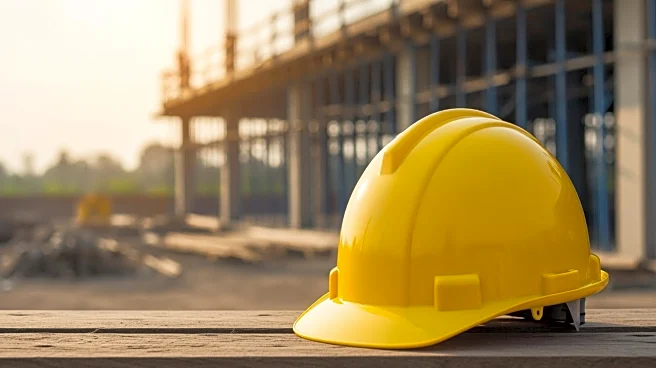What's Happening?
The Texas construction industry is experiencing significant workforce pressures due to a slowdown in immigration, as reported by the Federal Reserve Bank of Dallas. The bank's analysis indicates that reduced
international migration is affecting employment growth across all business sectors in Texas, with construction being particularly impacted due to its reliance on foreign-born labor. Immigrants make up about 40% of the construction workforce in Texas, a figure much higher than their share of the overall population. The slowdown in immigration is attributed to changes in federal immigration policy, which have led to fewer new arrivals, exacerbating the workforce challenges in the construction sector.
Why It's Important?
The slowdown in immigration has broader implications for the Texas economy, particularly in the construction industry, which is one of the largest and most active in the U.S. The reliance on immigrant labor means that the industry is vulnerable to changes in immigration policy. As the demand for infrastructure and industrial projects surges, the reduced availability of foreign-born workers could lead to increased costs and delays in project completion. This situation poses a risk to economic growth and development in Texas, as construction firms struggle to maintain stable workforces and meet project deadlines.
What's Next?
The Dallas Fed warns that unless immigration and population gains accelerate, Texas job growth may remain below historical norms. Construction firms may need to adapt by increasing wages, relying on overtime, or importing labor from neighboring states to meet demand. The ongoing workforce challenges could influence bid strategies, risk pricing, and staffing plans across the sector. The situation calls for a reevaluation of immigration policies to ensure a steady flow of labor to support the state's economic expansion.
Beyond the Headlines
The immigration slowdown highlights the structural dependency of the Texas construction industry on foreign-born labor. This dependency raises ethical and policy questions about the sustainability of current labor practices and the need for comprehensive immigration reform. The situation also underscores the importance of balancing economic growth with fair labor practices and the integration of immigrant workers into the broader workforce.










